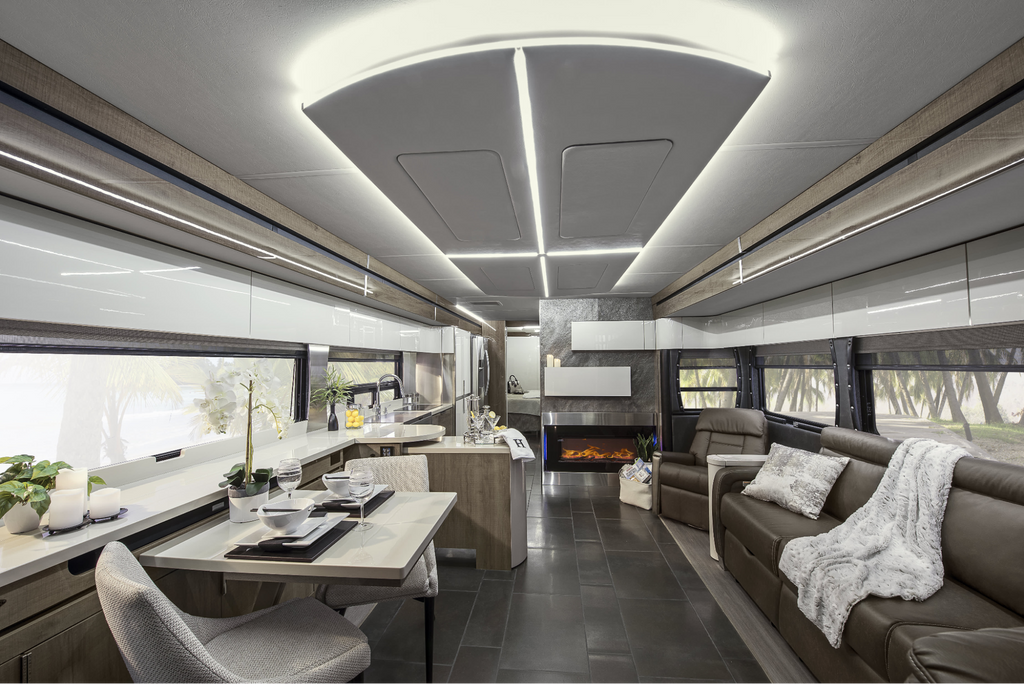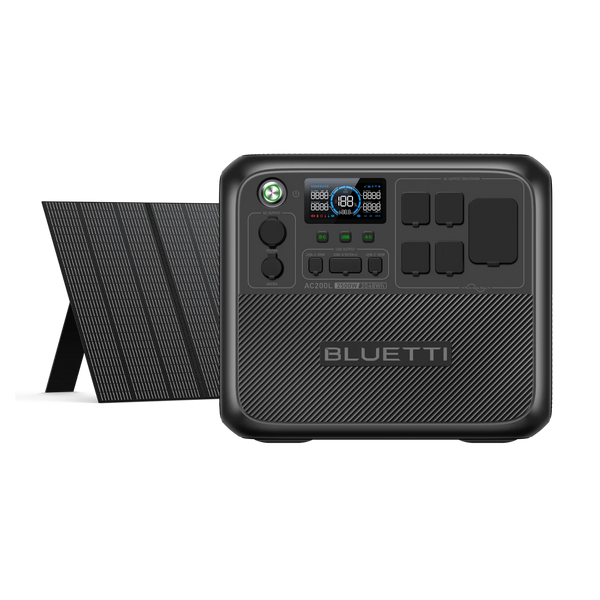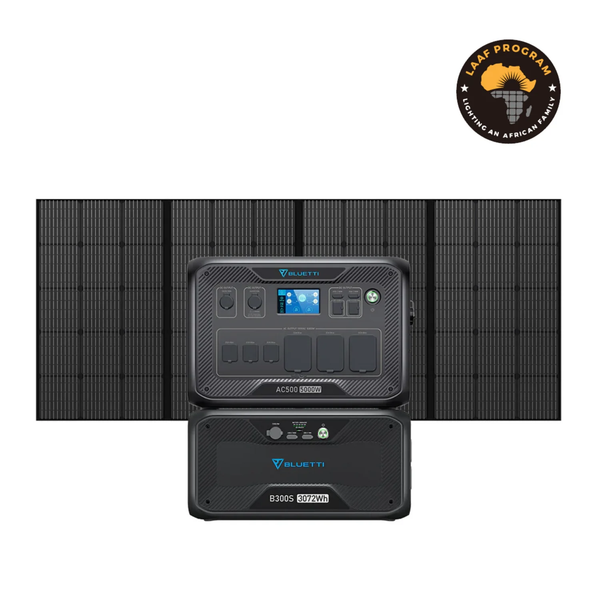Going wild in your RV is a joy ride, but needs your mobile home powered. From appliances to charging devices, or even having some fun, a reliable generator becomes your power pal.
So, what makes the best RV generator? What type of things should one consider when comparing different models and brands? How are you to get the perfect size and kind of generator for your RV? This guide will answer these and many more. We will consider the different types of RV generators, how to calculate the power requirements and assist you in determining the right size of generator for your 30- or 50-amp RV. We will also showcase some of the quietest and most efficient generators on the market and offer helpful tips for selecting and operating your RV generator.
Types of RV Generators
When looking to get some electricity into your RV, you have a wide range of options to select from. Two main categories are portable and permanent built-in generators. The portable ones are normally quite small and light, hence easy to move and store. But this may not be enough for larger RVs or for frequent use. Built-in generators are part of your RV, taken from your fuel tank. It might cost more and need more work to set up and maintain.
There can also be differences in generators on the basis of the fuel they use, which will show how a generator works, how efficiently a generator works, and the changes brought in the environment. The common fuel types are solar, gas, and diesel. Solar generators use the sun's power and keep it in a battery. They are environmentally and budget friendly. Nevertheless, they may not work well in bad weather, and they may have less power and storage. A gas or diesel generator is a fossil-fueled generator and is more powerful and reliable. On the downside, it is a loud machine, contaminates the environment, creates trash, and needs more attention to fueling and caring for.
How Much Power Do You Need in Your RV?

There are three most important things that have to be kept in mind when considering how much energy you need for your outdoor truck. First, think about the power needs of the appliances and devices that you have. A microwave needs a lot, for example, and a smartphone doesn't. Second, think about how you use your RV. If you stay at an RV park with a hookup, you will use more power than if you go off-grid with no utilities. The amount of power required, how much power is needed, the factor of cooling or heating the RV, and the weather amongst all the other factors will also determine your power need.
Thirdly, differentiate between starting and running power. Starting power, or "surge power," is the added power that needs to be provided for an appliance to get started, usually twice the amount of running power. Running power, in turn, is the steady power that must be supplied to keep an appliance working. These elements together help you decide how large of a generator you need for your recreational truck.
Related articles: What Is the Best Type of Solar Panel for an RV?
What Size Generator Do I Need to Run My RV?
Choosing the best RV generator is like fixing parts of a puzzle; the parts would be the amount of power one needs. The size of a generator is based on the total watts of your RV; a figure that can be deduced from multiplication by your RV's volts and amps.
In that light, for a 30-amp RV, it usually involves one service leg to provide power to appliances and outlets at 120 volts. Watts is also computed with a formula: Amps x Volts = Watts. In this case, 30A x 120V will equal 3600W. Therefore, a 30-amperage RV is excellently served by a generator of no less than 3,600 watts, which might provide enough power not only to a refrigerator but also to a washing machine, as well as to some more small appliances.
Conversely, an RV with 50-amperage service can be thought of as two service legs, effectively doubling the amount of wattage available to 12,000W (50A x 120V x 2). Of course, not all RVers need that much power. If possible, find a generator that can give you somewhere between 6,000 to 8,000 watts to run most of the 50-amp RV, as it gives you the ability to operate two or more appliances at the same time.
What Is the Quietest Generator for an RV?
When it comes to quiet generators for RVs, the BLUETTI series stands out. These include:
BLUETTI AC200L + PV350

If you need a powerful and reliable power source for an RV, then look no further than the AC200L+PV350 Solar Kit. All in all, it has every item needed to make sure that an RV runs smoothly. It has a 2400W AC output with a 3600W power lifting mode and can power any appliance or device. It has a 2048Wh capacity, which when doubled or quadrupled with extra units, the power is abundant enough for you. An input of 2,400W AC is enough to charge from 0-80% within one hour and up to six other ways of recharging for your comfort. You are also able to control and monitor it via an app, easy and smart.
The kit has a PV350 solar panel. This lets you harness the power of the sun more efficiently than with other panels, with a bigger percentage of solar conversion possible. Besides, the setting is easy, portable, with a splash-proof design that will also keep the system in its place, even outdoors. It supports various models from BLUETTI and could be made easy to fold and move, making it a highly adaptable and mobile power solution.
BLUETTI AC300 +B300 + 3*PV200

This kit is a powerhouse for your RV, with a 3,000W pure sine wave inverter handling up to 6,000W of peak power. You can expand its 3,072Wh capacity to a massive 12,288Wh with extra B300 units, so you’ll always have enough juice. The LiFePO₄ battery is durable and dependable, with over 3,500 life cycles to 80%. You can recharge the kit in 7 different ways, from solar to AC to your car, giving you the ultimate flexibility. With a dual input setup that is super fast in refilling, it can charge up to 5400W power and supply up to 2400W solar power.
The kit comes together with the 3 PV200 solar panels. These panels have monocrystalline solar cells able to convert up to 23.4% of sunlight into electricity, consequently ensuring the provision of optimum energy harvest. The panel is coated with ETFE, a strong material not susceptible to easy wear and tear. They are also foldable and, thus, portable; thus, one can easily take them and put them anywhere. The panels fit quite well with most solar generators with MC4 connectors and are covered for 12 months—a warranty that leaves you with peace of mind.
BLUETTI AC500 +B300S +PV350

Picture an electricity source as robust as a dragon but as silent as a whisper. That's the AC500+B300S+PV350 Solar Kit for you. It's powered by a 5,000W rated power beast at its heart, surging to 10,000W—more than enough power to turn your RV into a literal Christmas tree. It has a starting capacity of 3,072Wh, but this is just the beginning—it can climb further, like a beanstalk, all the way up to 18,432Wh. Besides, the kit is the loyal knight of the LiFePO₄ battery in order to serve you through over 3,500 lives.
This kit is not just a power pack; it comes with smart power. With six ways to recharge and smart control from an app, it's almost as if it's having a personal power manager right at your fingertips.
It comes with a powerful PV350 solar panel that stands silent as a sentinel capturing energy at high conversion. It's durable, splash-proof, and silent sentinel that is easily set up and indeed a true companion for your outdoor adventures. It's compatible with several BLUETTI models, foldable, and portably easy to move around much like a trusted shield.
Tips for Choosing the Best RV Generator
The major four things to consider when selecting the best RV generator include: Power or Capacity, Recharge Options, Rates of Recharge, and Weight. It has to be able to power up all your appliances. Look for generators that can recharge in a variety of ways, such as by using solar panels for green energy. Look for a quick recharge rate in order to save time. And pick the right balance between power and portability; light generators may have less power, while heavy ones may be hard to move. Pick the generator that meets your RV needs.
Final Thoughts
In conclusion, selecting the best RV generator is sort of a big deal. You need to know how much power your RV needs if you want a portable or a built-in generator. This involves the need to do homework before making a purchase, and considering not only the up-front costs but the continuing costs, such as fuel and maintenance.




